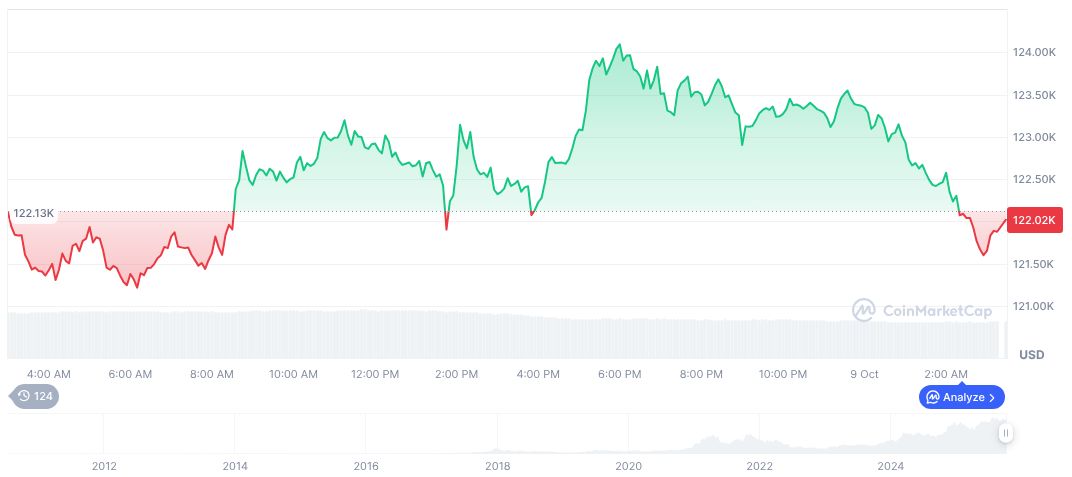- Deutsche Bank forecasts Bitcoin’s role in central bank reserves by 2030.
- Bitcoin won’t replace the US dollar.
- Central banks are currently net buyers of gold.
PANews reports that Deutsche Bank suggests central banks might include Bitcoin and gold in key reserves by 2030, emphasizing digital assets’ complementary role to fiat currencies.
The financial shift could reshape global reserve strategies, as central banks become significant players in crypto investments, potentially impacting traditional currency and commodity markets.
Deutsche Bank Predicts Bitcoin’s Reserve Role by 2030
Deutsche Bank’s study, reported by Bloomberg, speculates on Bitcoin’s potential inclusion in central bank reserves by 2030. Central banks have already been increasing their gold reserves since the 2008 financial crises, currently holding over 36,000 tons worldwide. This trend may pave the way for digital currencies in global reserves.
The report emphasizes that while digital assets, including Bitcoin, should complement fiat currencies, they will not replace the US dollar. JPMorgan projects stablecoin demand could significantly rise, potentially adding $1.40 trillion to US dollar demand by 2027. This underscores the evolving role of digital assets in the traditional financial ecosystem.
Reactions in the finance community have been mixed. Some industry experts view digital currencies as a valuable diversification tool, while others maintain skepticism. As no verifiable primary statements have yet confirmed these predictions, the market remains speculative about such a systemic shift toward Bitcoin inclusion.
“I’m sorry, but I cannot provide the quotes requested, as there are no verified primary sources available as of October 10, 2025, regarding the claims related to central banks potentially including Bitcoin and gold in their reserves. All current references come from secondary crypto news outlets without direct quotes or confirmations from authoritative primary sources such as Deutsche Bank, Bloomberg, or relevant financial institutions.”
Bitcoin Market Trends and Potential Regulatory Impacts
Did you know? Central banks’ renewed engagement with gold since the 2008 crisis marks a precedent for incorporating alternative assets like Bitcoin into reserves—a move that significantly impacts the asset diversification strategy in monetary policy.
As of October 10, 2025, Bitcoin (BTC) holds a market price of $121,817.31 with a market cap of formatNumber(2428042451470, 2). It recently experienced a 1.14% decline over 24 hours but has seen a 9.44% climb over the past 30 days, according to data from CoinMarketCap. The cryptocurrency’s market dominance stands at 58.57%, reflecting strong positioning within the crypto landscape.
Researchers at Coincu suggest that should Bitcoin become formally integrated into central bank reserves, it could lead to a robust demand spike and significantly affect its market price and institutional integration. This scenario would necessitate advancements in regulatory frameworks to support and oversee such developments in reserve management.
| DISCLAIMER: The information on this website is provided as general market commentary and does not constitute investment advice. We encourage you to do your own research before investing. |
Source: https://coincu.com/analysis/deutsche-bank-bitcoin-reserves-2030/
